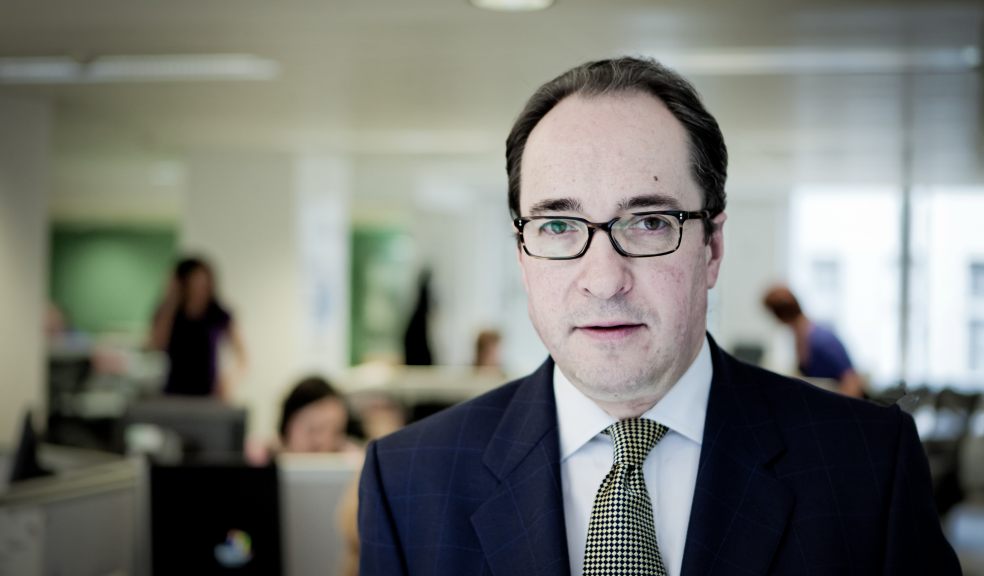
Economic Growth stunted due to faults with funding process, claims LGA Chairman
The Chairman of the Local Government Association (LGA), Sir Merrick Cockell, is to address public service leaders from across Devon tomorrow saying that economic growth is being stunted because of the way Whitehall allocates and spends taxpayers' money.
Sir Merrick Cockell will use his keynote address to local government leaders, councillors and public service leaders from across Devon to demand a radical overhaul of the way public money is distributed and spent to deliver a fair deal for English residents, boost economic growth and completely rewire a public sector which has become geared toward handling failure rather than preventing it in the first place.
Sir Merrick will use the speech on Thursday (10 October) at Exeter Guildhall, to launch a groundbreaking report – Rewiring Public Services – which sets out 10 ideas to improve public services, save money and get Britain's economy growing again.
The speech follows the announcement earlier in the summer of a further round of cuts to public spending in 2015/16, including a 10 per cent cut to local government's funding allocation. This cut comes on top of the 33 per cent real terms reduction in council funding which is being made across the 2011/12 to 2014/15 comprehensive spending review period.
The LGA, which represents more than 370 councils in England and Wales, believes the current public sector model, with its highly centralised control of budgets and spending priorities, is inefficient and unsustainable in the context of long-term cuts to public spending. As well as reducing peoples' democratic say over how public services are delivered, it is creating inefficiencies because different parts of government are not communicating well with each other. The LGA say that this is preventing the public sector from identifying and tackling problems early, which in turn is increasing demand on high cost institutions like hospitals, prisons and the welfare system.
The LGA believe these issues can be addressed through a radical rewiring of the public sector, based around giving local areas greater control of public money. This, it says, will allow local areas to make decisions on how that money is spent and design services that work for their communities and reduce demand for higher cost national services. It will also ensure that funding for key growth drivers, such as spending on infrastructure and skills training, is targeted in a way that supports businesses and helps them to deliver economic recovery.
In his speech Sir Merrick will say that 10 key steps must be undertaken to deliver the necessary reform. These include:
* Create a single England Office by merging six Government departments – The Department for Communities and Local Government, Department for Transport, Department for Environment, Food and Rural Affairs, Department of Energy and Climate Change, Department for Culture, Media and Sport – and relevant parts of the Home Office. This will tear down the barriers between Whitehall departments that are reinforcing inefficiency in the public sector and ensure that England is represented in discussions over funding allocations across the United Kingdom.
* Scrapping the outdated Barnett formula – under which Wales, Scotland and Northern Ireland have taken proportionally less severe cuts in public spending than those applied to England – and replace it with a needs-based funding formula. This will ensure public money is spent where it is most needed.
* Deliver a fair, secure and long-term funding settlement for local government. This should include the delivery of a multi-year settlement tied to the life of the Parliament to aid financial planning.
Speaking on this issue, he said: "Scotland, Wales and Northern Ireland already have a significant say over everything from health services to public transport, yet England's communities are still battling for the same freedoms.
"We want to ensure that all parts of the United Kingdom are equally represented. Funding must be based on need rather than historical precedent and local communities everywhere should have more influence over how public services are paid for, prioritised, and delivered.
"English communities deserve a fair deal. The absence of a Secretary of State for England, whose job it is to fight in the cabinet room on their behalf, means they are currently not getting one. That must be addressed in the next Parliament."
Exeter City Council Leader Pete Edwards, will be attending Thursday's event. He said: "These are tough times for local authorities but it's obvious that we need a new approach. The way that public money is currently distributed and spent needs to change, otherwise we will have a potential crisis of trust within our communities.
"There needs to be much more collaboration across the sector and greater focus on place rather than a one-size fits all approach. Now is the time for the government to come forward and give us the tools that will enable us to drive growth in our local economies."













